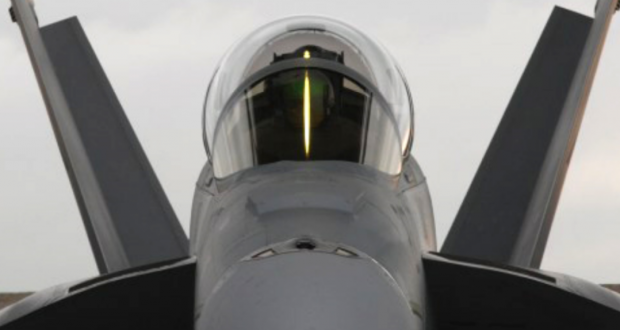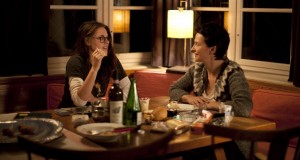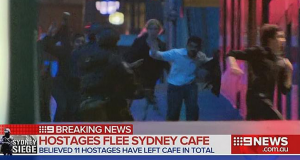“So much death! What can men do against such reckless hate?” asks a despairing Théoden, faced with the pitiless onslaught of the orcs in J.R.R. Tolkien’s Lord of the Rings trilogy.
There’s an unnerving echo of the battle for Middle Earth in the media coverage of the unfolding Middle East crisis.
Unlike the wearisome conflicts in South Sudan, Gaza, Ukraine and across Africa, the fight against self-proclaimed Islamic State (IS) militants has become a crusade. This is a “death cult”, says Prime Minister Tony Abbott—the struggle of civilisation against barbarism.
Images of the enemy, swathed in arcane symbols and frozen in unspeakable acts of violence, swamp traditional and online communication platforms. And despite the careful couching of Australia’s military involvement as “mission”, “advisory” and “humanitarian”, the language of war is unambiguous.
There is of course nothing new about a media landscape which reflects our need to identify the dangerous “other”. Yet the public debate which is fundamental to democracy seems curiously lacking.
Without substantive challenge, commentators have allowed politicians to segue between Mr Abbott’s previous analysis of the Syrian conflict as “not goodies versus baddies, it’s baddies versus baddies” to the reassuringly gritty “boots on the ground”. With the support of the federal opposition, Australia has just cemented a deal with Baghdad to deploy 200 Australian Special Forces in Iraq. This is in addition to the fighter jets which joined the US-led campaign in October.
Our willingness to be side-tracked into issues which are essentially all about us is reflected across the media landscape. Consider the Women in Solidarity (with) Hijabs (#WISH) social media campaign which encourages non-Muslim women to take selfies wearing hijabs. Putting aside the irony of the de facto endorsement of the burqa by Western women, the campaign trivialises the challenges of multiculturalism with a click of the “Like” button.
Traditional media reflects a similarly narcissistic response. The first episode of the Chaser’s Media Circus aimed to undermine the bigotry of IS with well-deserved satire. Ridicule and contempt are blunt weapons however, and in the spirit of inclusiveness the Chaser team could not resist the temptation to pillory all three Abrahamic traditions. The world is full of religious nutters apparently.
There will be no single Christian response to this war. But we are called by Jesus to be the salt of the earth, that element which cuts through the bland and the cloyingly sweet. As Paul warned: “Test everything; hold fast to what is good” (1 Thessalonians 5:21 NRSV).
Dianne Jensen
 JourneyOnline
JourneyOnline







